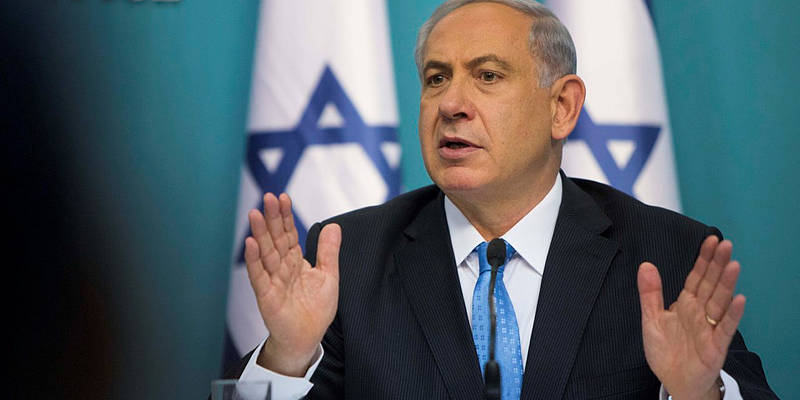PM Netanyahu defends the implementation of a ceasefire, saying that Israel had pulverized Hamas and must now focus on other major terrorist groups at its borders.
Prime Minister Benjamin Netanyahu, in the wake of public criticism for his decision to agree to a ceasefire with Hamas, said that the terror group was severely weakened by the IDF’s Operation Protective Edge.
In an interview with Israel’s Channel 2 on Saturday, the Israeli leader insisted that Israel’s defensive attacks on Hamas in Gaza over the last month and a half have weakened the terror organization sufficiently to prevent a major threat to Israel.
Netanyahu did not rule out the option of retaking Gaza at some point in the future, but now is not the time, he said.
IDF Dealt Hamas a ‘Terrible, Terrible Blow’
“I believed that what we should do at this time is simply to pound them,” Netanyahu stated. “So maybe they remain in power, but they are pulverized. They are isolated. They cannot smuggle weaponry.”
“We’ve done this,” he added. We’ve dealt them a terrible, terrible blow. We’ve given Hamas a thrashing that it will remember for many years.”
Yet he warned that Israel would retaliate harshly to any new attacks by Hamas, vowing that “drizzles will be answered with a downpour.”
ISIS and al-Qaeda on Northern Border
A major reason for the decision not to oust Hamas at this time is the presence of other growing radical Islamist groups in the region.
“The Islamic State [ISIS] is racing towards us and al-Qaeda is on the Golan border. I chose in this reality not to invest all our resources in this one area [Gaza],” Netanyahu said.
“Today, when I look around and I see Al Qaeda on the fence, and ISIS [Islamic State in Iraq and Syria] galloping into Jordan and already in Lebanon, and in Lebanon there is Hezbollah that is a little larger than Hamas, and Iran that backs it, and Iran [on its own] – and I say, in the face of these combined threats, we set a goal in the Cabinet to deal Hamas a very serious blow,” Netanyahu explained, noting the killing by the IDF of more than a thousand terrorists, including senior commanders, and the demolition of the majority of terror tunnels.
Furthermore, “Why do I need to go in? If I can hit them from the air and get the effect of grinding them without risking soldiers’ lives, why should I go in?”
US Invasion of Iraq Achieved Temporary Results
Netanyahu emphasized his point by noting the consequences of the American invasion of Iraq in 2003. The US suffered mass casualties fighting al-Qaeda terrorists in the city of Fallujah, only to witness their return once the Americans had left.
“The US fought against a smaller Gaza, called Fallujah,” Netanyahu said, adding that the city is “a 10th the size of Gaza. The great United States fought in Fallujah…sacrificed hundreds of soldiers who fought bravely….
“Thousands of Iraqis were killed there – many thousands. And in the end it [the US] went out and al-Qaeda came back.”
Therefore, “if we pay those prices – and they are heavy prices – we may need to stay there,” Netanyahu declared.
Retaking Gaza: A Viable Option?
In 2005, Israel unilaterally withdrew from Gaza, where 10,000 Israelis had built thriving agricultural communities, known as Gush Katif. Indeed, a growing number of citizens and politicians have said they would welcome a return of Israeli sovereignty there on a permanent basis.
While instead expressing hope for a peace deal with the Palestinians and a more moderate Palestinian leadership in Gaza, Netanyahu remained adamant on security – not only at the southern border, but also in the north and in Judea and Samaria.
Demilitarization in Judea and Samaria
“The problem of demilitarization…is not only true for Gaza, but for the West Bank as well,” Netanyahu said. “Who will prevent tunnels from being dug? Who will prevent rockets from being manufactured? Who will demilitarize the territory?”
“You can’t talk about a diplomatic process without talking about security,” he asserted.
Author: Atara Beck
Senior Writer/Editor, United with Israel
